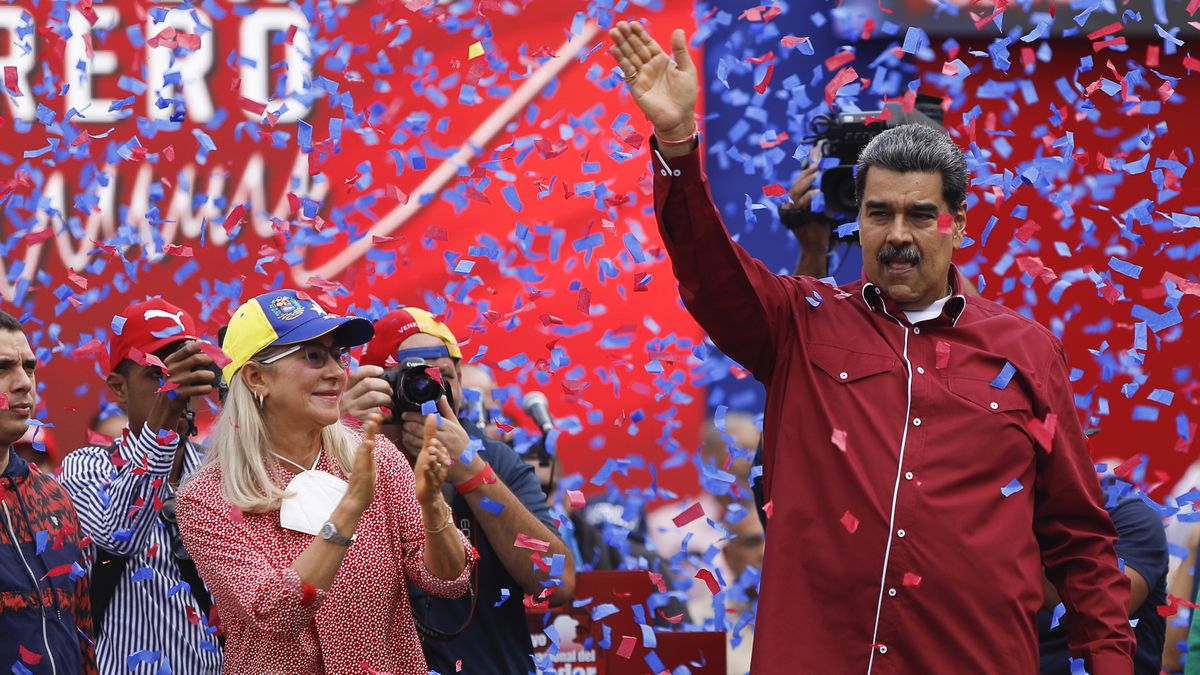Title: Venezuelan President’s Advisor Meets US National Security Council Adviser in Qatar
Subtitle: Qatar plays unexpected role in mediating between Venezuela and the United States
Date: [Insert Date]
In an effort to unblock the political and social situation in Venezuela, high-level contacts are continuing to take place. According to official sources, Jorge Rodríguez, the president of the National Assembly of Venezuela and right-hand man of Nicolás Maduro, met with Juan González, an adviser to US President Joe Biden, three weeks ago in Doha, the capital of Qatar. What sets this meeting apart is the absence of mediators or third parties, signaling the seriousness and delicacy of the discussions.
Qatar, a country that has gained prominence in global diplomacy, has unexpectedly taken on a leading role in mediating between the White House and the Chavista government in Venezuela. Besides hosting the meeting between Rodríguez and González, Qatar has made efforts to intercede between the two countries, which have struggled to find common ground in recent months. Colombia, once fully involved in Venezuela’s political affairs, has scaled back its engagement, allowing Qatar to step in.
The purpose of Rodríguez and González’s meeting was to establish a direct channel of communication, as reported by the same sources. They discussed topics such as the release of prisoners and the normalization of political life in Venezuela, which appears to be a distant reality at present. These high-level meetings, although common in entrenched and complex processes like that of Venezuela and its relationship with the United States, are typically kept secret to prevent outside interference. When approached for comments, both Rodríguez and González chose not to disclose any details.
One of the major challenges is the lack of agreement on a date for the general elections in Venezuela. Maduro has not set a date for the elections, which are supposed to involve an opposition candidate challenging him for the presidency. The resignation of the National Electoral Council (CNE) has further complicated the situation by making it difficult to hold opposition primaries. Caracas, on the other hand, demands the release of Alex Saab, a Colombian businessman and Maduro ally who is being tried in the United States for money laundering and corruption. Chavismo considers Saab a Venezuelan diplomat. These actions by Chavismo are seen by the White House as a challenge and an indication that they are not giving in to international pressure for democratization.
Maduro’s argument for his uncompromising stance is that the US has not lifted international sanctions imposed on his government. Chavismo blames these sanctions for the severe economic crisis that Venezuela has been facing for the past seven years. The president’s statement in November, “If they want free elections, we want sanctions-free elections,” leaves no room for interpretation. Additionally, Chavismo has accused Biden of not releasing the Venezuelan funds frozen abroad, amounting to billions of dollars, which had been agreed upon in dialogue with the opposition in Mexico last year. These funds, managed by a UN trust, were crucial in alleviating the Venezuelan crisis.
The United States and other countries believe that Maduro, despite initially showing willingness to negotiate, has become immovable. French President Emmanuel Macron and Gustavo Petro, the former presidential candidate in Colombia, have both urged Maduro to specify a date for the elections as a means of bridging the gap between the two sides. However, Maduro has not taken any actions in this regard, indicating little likelihood of progress in the near future. The granting of a license to Chevron, allowing the oil company to operate in Venezuela, had initially been seen as a gesture of goodwill, but no further concessions have been made by either party.
Maduro remains firm in his position and is not willing to make any compromises. In recent months, he has regained internal authority and diplomatic privileges, making appearances at international and regional summits after years of refraining from leaving the country. While the economic situation has improved to some extent due to oil revenues and limited liberalization, growth remains restricted to a select few. With the talks between the opposition and Chavismo in Mexico at a standstill since November, there seems to be no willingness on either side to return to the negotiating table. Maduro now demands the immediate lifting of all sanctions to restart the dialogue, further deepening the rift between the two parties.
In this tumultuous scenario, Qatar has emerged as an unexpected facilitator. The secret meeting between Rodríguez and González reflects a small attempt to build a bridge between two parties with little trust in one another. The outcomes of these discussions are yet to be seen and will likely have a significant impact on the future of Venezuela and its relations with the United States.
[End of Article]
